Every now and then the following meme does the rounds on the family-focused corners of social media. The meme/public service message encourages parents and teachers to switch children to a kid-friendly search engine called Kiddle.
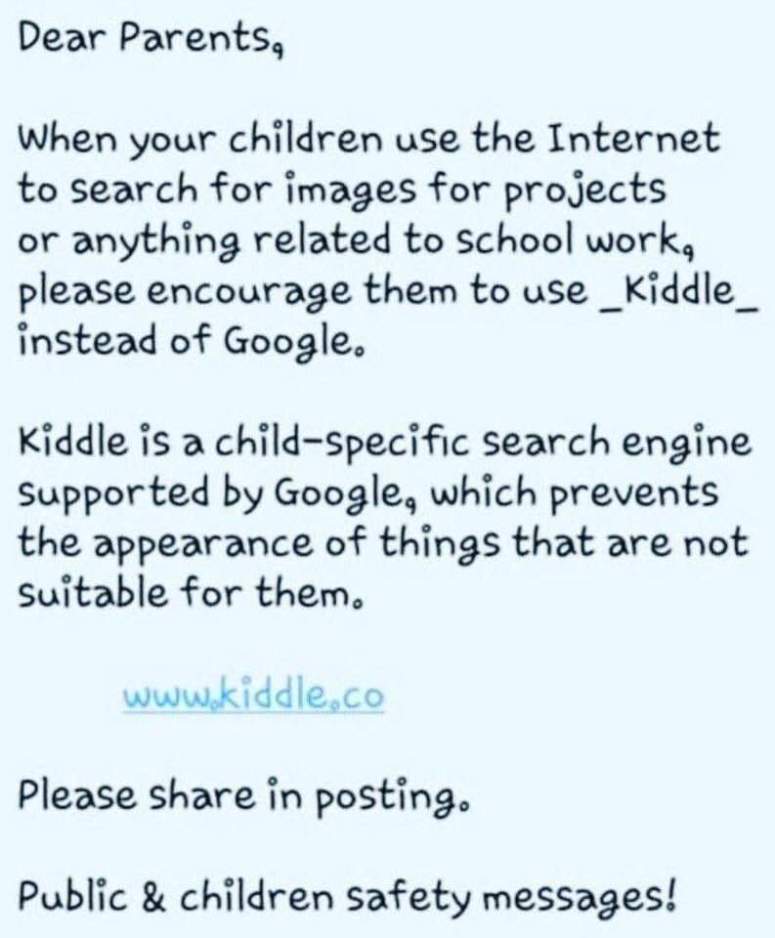
Kiddle’s tagline is that it’s a “safe visual search engine for kids.” It has been around for a few years, and is certainly not the only search engine marketed as child-friendly – similar services include Kidrex.
To be clear, neither Kiddle or Kidrex are reinventing the search engine wheel, and, despite what some news stories imply, neither are owned by Google – they just use heavily customized versions of Google’s search engine under the hood, going beyond SafeSearch with the goal of making internet sleuthing as safe as possible for little ones.
In fact, Kiddle got into a little hot water a few years ago for making its search engine too exclusive, when it erased LGBT-related terms right out of existence from its search engine results pages. Kiddle soon fixed their search engine so kid-safe LGBT terms do show up in their searches.
Why bother with “kid-friendly” search engines?
The idea behind kid-friendly search engines like Kiddle is to make use of Google’s SafeSearch options and a thick layer of other filters to sanitize search engine results from any potentially inappropriate websites or images. This seems like a gift from the heavens for children learning how to use the internet at home, or for students that need access to lightly supervised internet time at school.
Kiddle also specifically offers a “Kimages” search option, which returns images that are all free to use under the Creative Commons Attribution-ShareAlike license (a feature that, frankly, many adults might find useful as well).
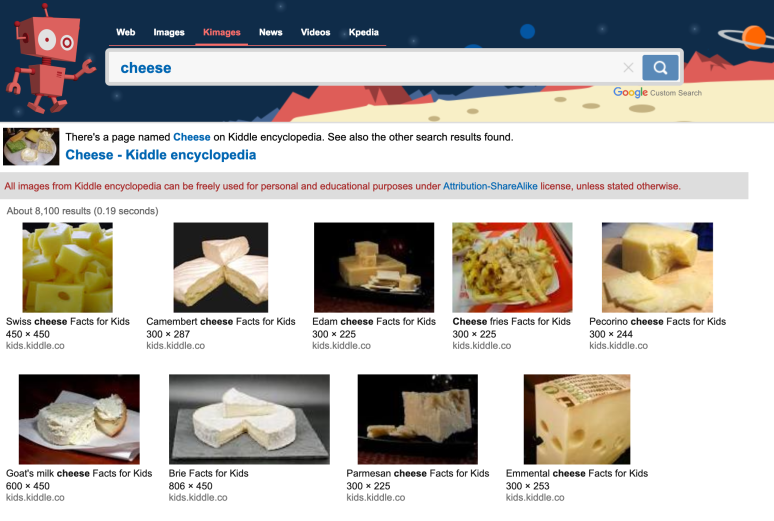
Ultimately, since these search engines are not hand-curating every single search engine result, it is always technically possible for something naughty or age-inappropriate to sneak past even the most stringent of filters.
For example, let’s say a young child gets an assignment for school to research their favorite number, and let’s say that number happens to be 14. This is a number that has been co-opted by white supremacy hate groups, but this child thankfully doesn’t know that and we would like to keep it that way.
Should the child search for the number 14 on Kiddle, the results that come up are both age-appropriate and educational:
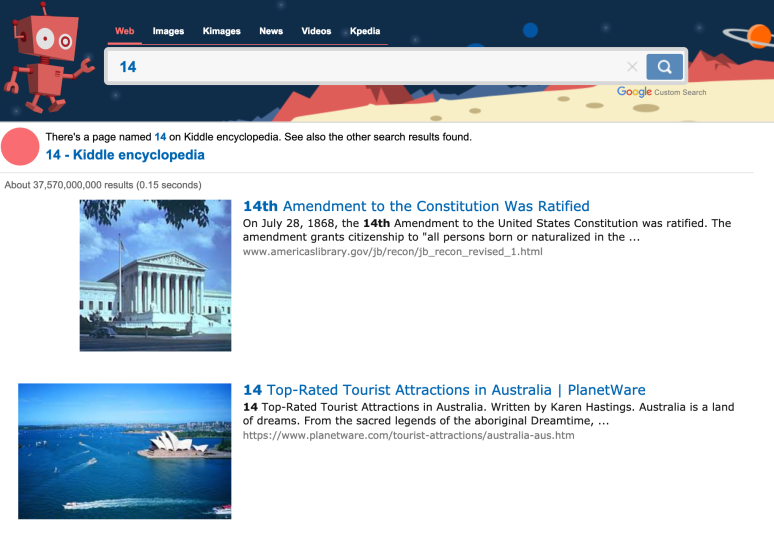
Should you search on plain old Google using SafeSearch, the top result is about how hate groups use this number. The story is from a reputable source, but this still might be too much information for a child to parse, especially if they’re younger.
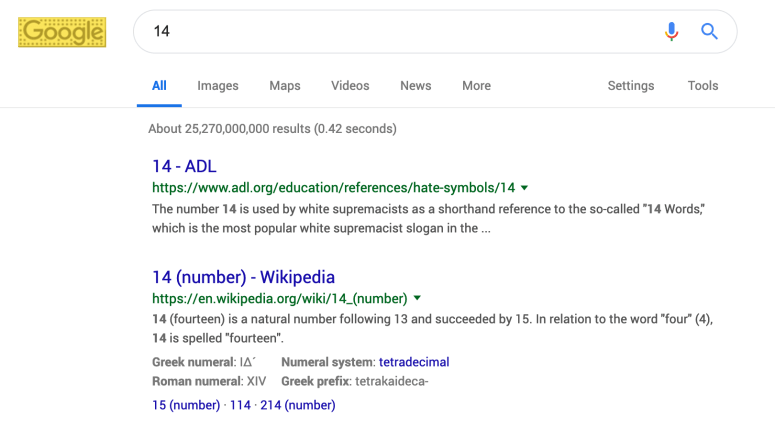
And on other search engines like KidRex, the results also include a lot of unnecessary tabloid fodder of dubious educational value:
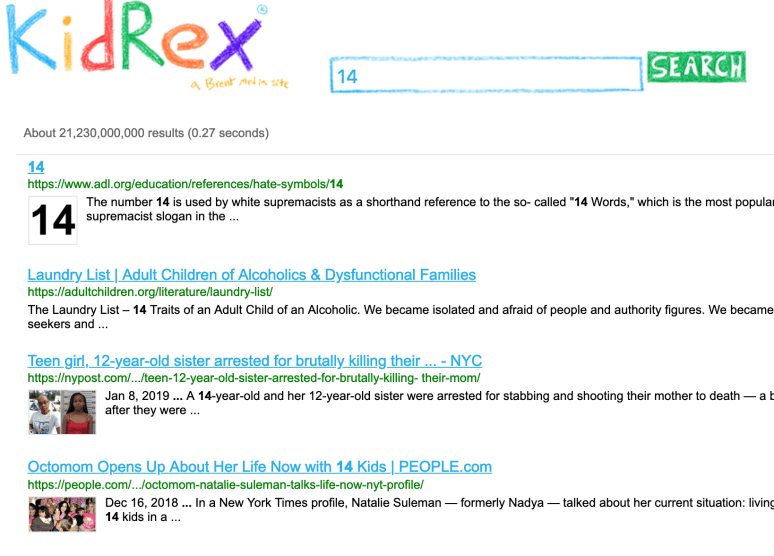
Such search engines are indeed great training wheels for younger kids who need to do online homework and research, but it can’t replace supervision and teaching a child how to be smart online.
In other words, kid-friendly search engines are not absolutely safe – but they are safer.
In the example above, it’s very possible that an older child is searching that number to find out why it’s “bad” – and it’s certainly better for someone to find out from a reputable source that gives appropriate context, than from the hate groups themselves.
Any privacy concerns?
As mentioned before, the base functionality of these search engines tends to be a “skin” on a custom Google search.
This means that ultimately the really heavy technical lifting is being done by Google’s servers, so if you are trying to avoid Google products these kid-safe search engines won’t help there.
If you have a Google account that you are actively logged into, your search queries on any website that uses Google search will still be stored under your search engine activity in your Google account, thanks to the magic of cookies:
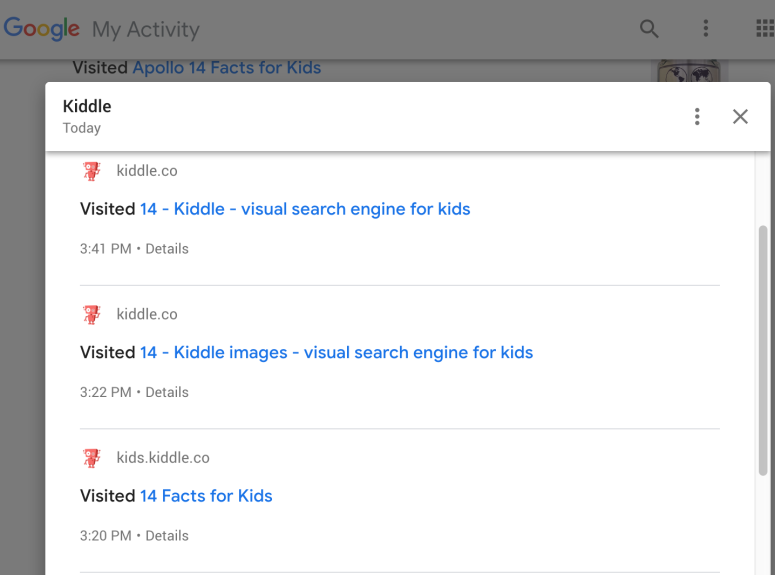
Kiddle specifically does not require any registration and its privacy policy says it does not collect personal information, and that it purges server logs every 24 hours. But again, ultimately this information all goes back to Google in some way, with or without a Google account.
If this is a concern, you’ll want to use an alternate search engine altogether, like DuckDuckGo, which has Safe Search mode.
DuckDuckGo returns marginally more child-appropriate – though overall far less educational – options in our test than some of the “kid safe” options listed above when used on “Strict” mode:
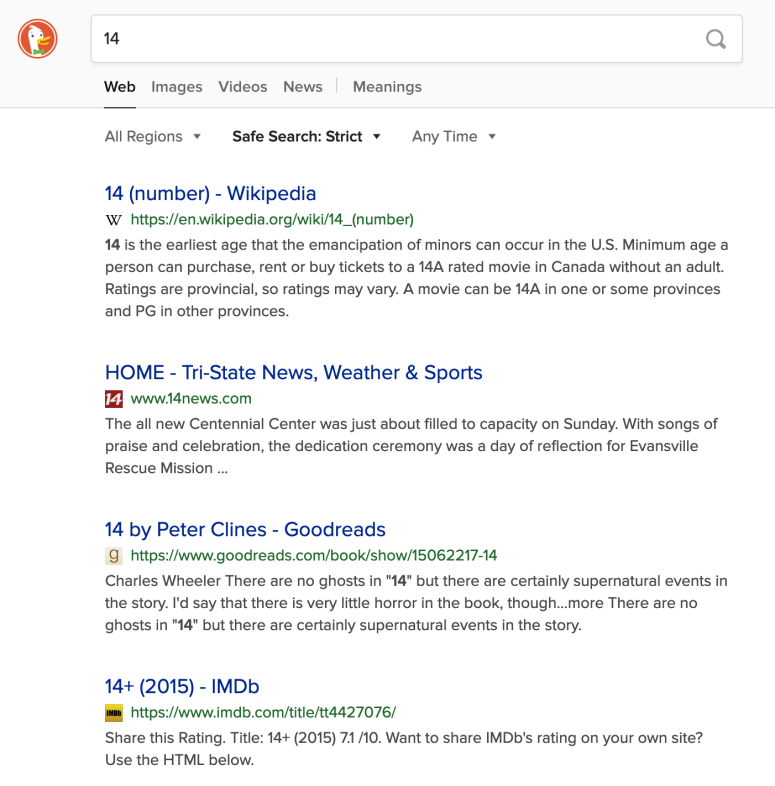
In summary
For younger children who need to be online but are far too young to be left to their own devices, and for parents and educators that want little ones to easily avoid age-inappropriate content, these search engines are quite a handy tool.
For older children, however, the results in these search engines may be too restrictive to be useful, and will likely only frustrate children to use other means. One Kiddle reviewer, who writes that they’re 15 and that their school exclusively uses Kiddle and not plain-vanilla Google, wrote that Kiddle was the:
Worst ting ever [sic] … it’s too safe…. you look up YouTube and it says “Oops TRY AGAIN!”
Now, keeping a teen from watching YouTube at school was likely the exact desired result, but hoping that this strategy will thwart them in the long term, or work at home or when they’re on their own, is folly.
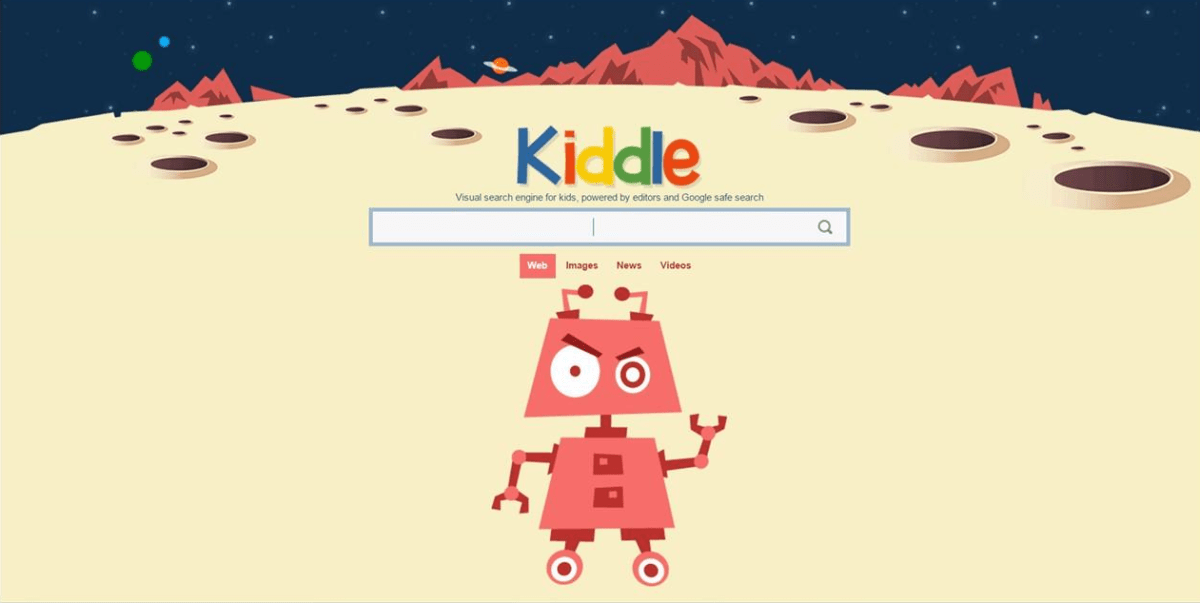
roleary
Has anybody tested them in other languages?
dennyhalim.com
there’s no such thing as kid-safe lgbt terms
anonymous
+1, especially transsexual nonsense
anonymous
Stop spreading the myths that white supremacy is about hate or that 14 has any significance, beyond maths. These are media myths. You wouldn’t call Greenpeace an environmental hate group, even though they hate pollution, would you? You wouldn’t spread the myth that 8 was about hate, rather than 5 or 12, would you? Sloppy article.
Kyle
I don’t think Maria was being judgy about the number 13. I believe the point is that some things that appear to be fine to google, could give very unexpected results.
As far as white supremacy being about hate, are we talking about the same people? I judge by actions, not words.
Alice
If a child wants to find out about white supremacy then they will find out one way or another. But kiddle and kidrex are tailored for younger kids who are not trying to search for or interested in such things. The sites are designed to help kids and should not be a substitute for adult supervision. Dinosearch.com is another good search engine that my young kids use in my classroom.
Anonymous
My son is in school and he complains to me that kiddle is bad because it doesn’t give him what he asks for. and he says that school’s should let kids go on Google. And it doesn’t give inappropriate answers unless you search for inappropriate things.